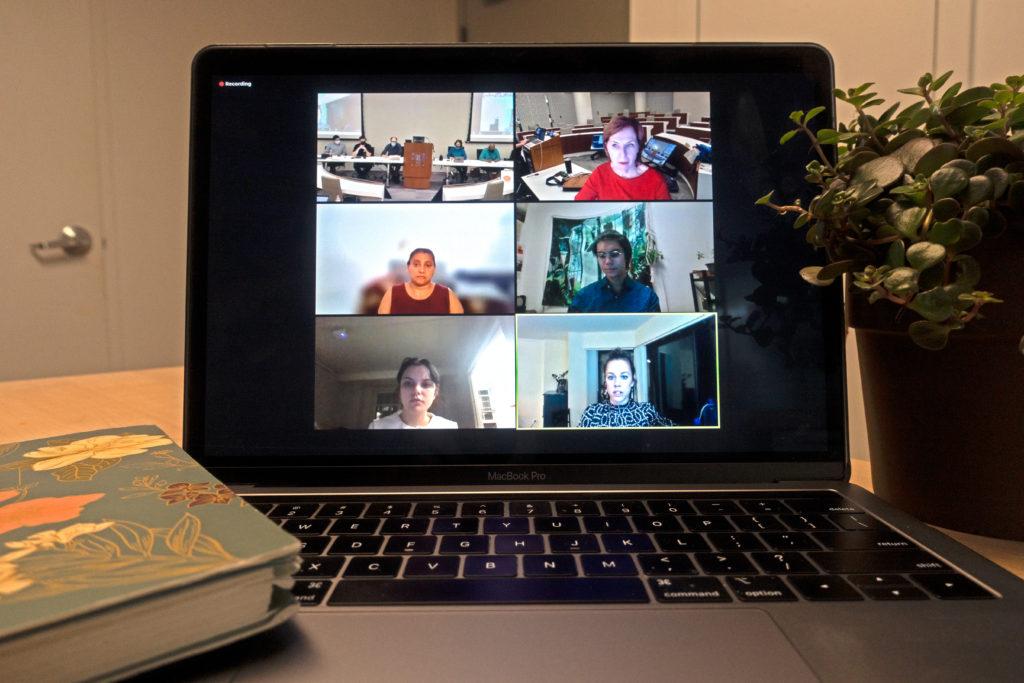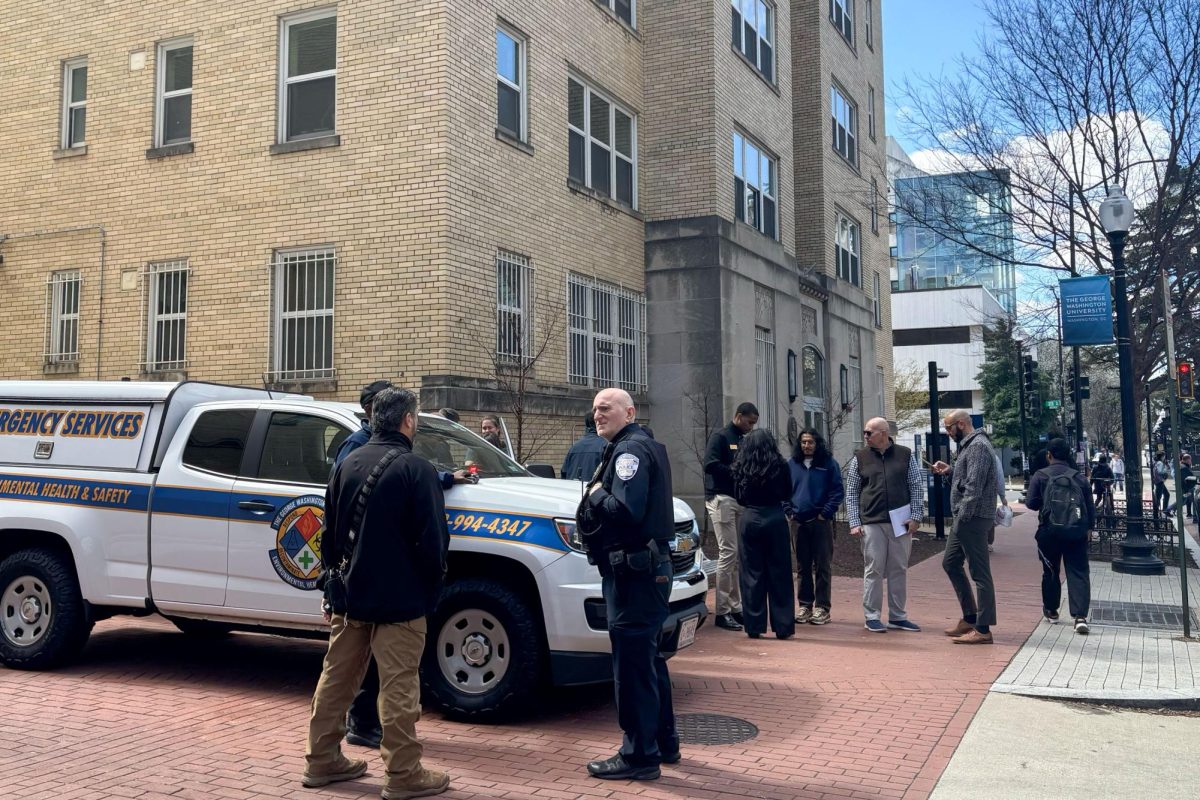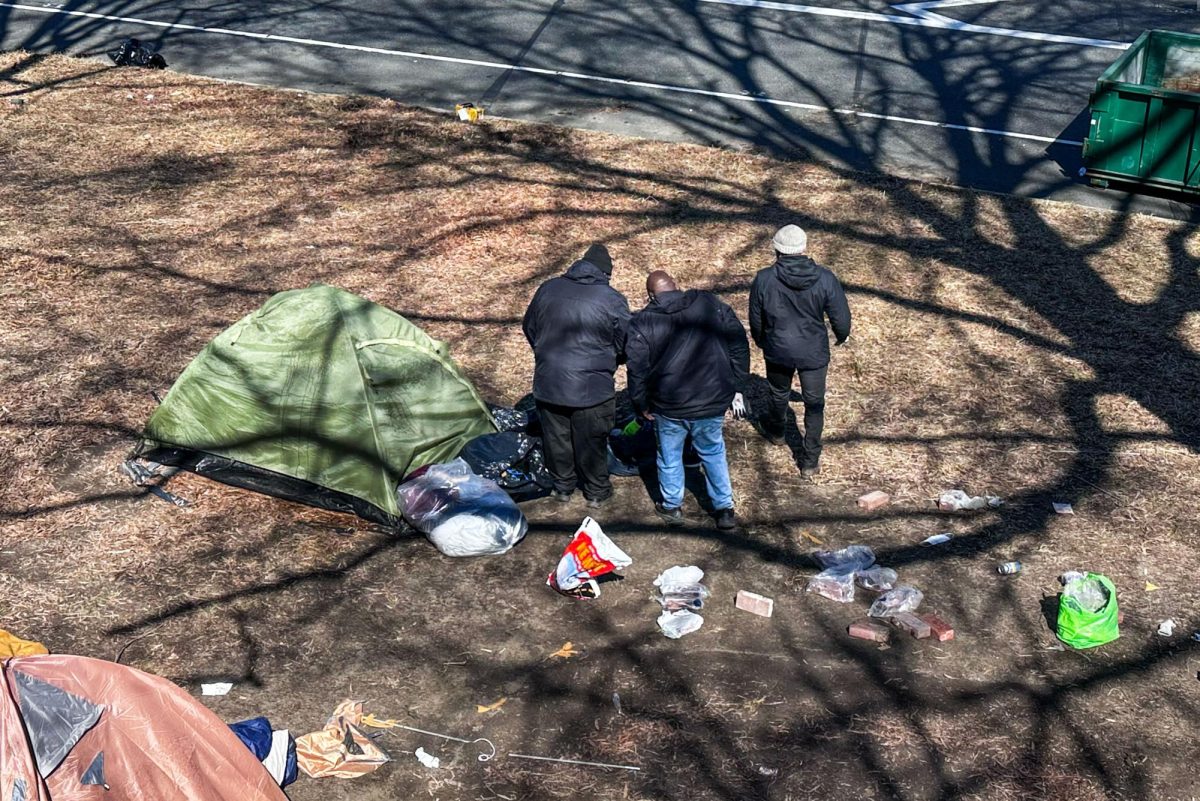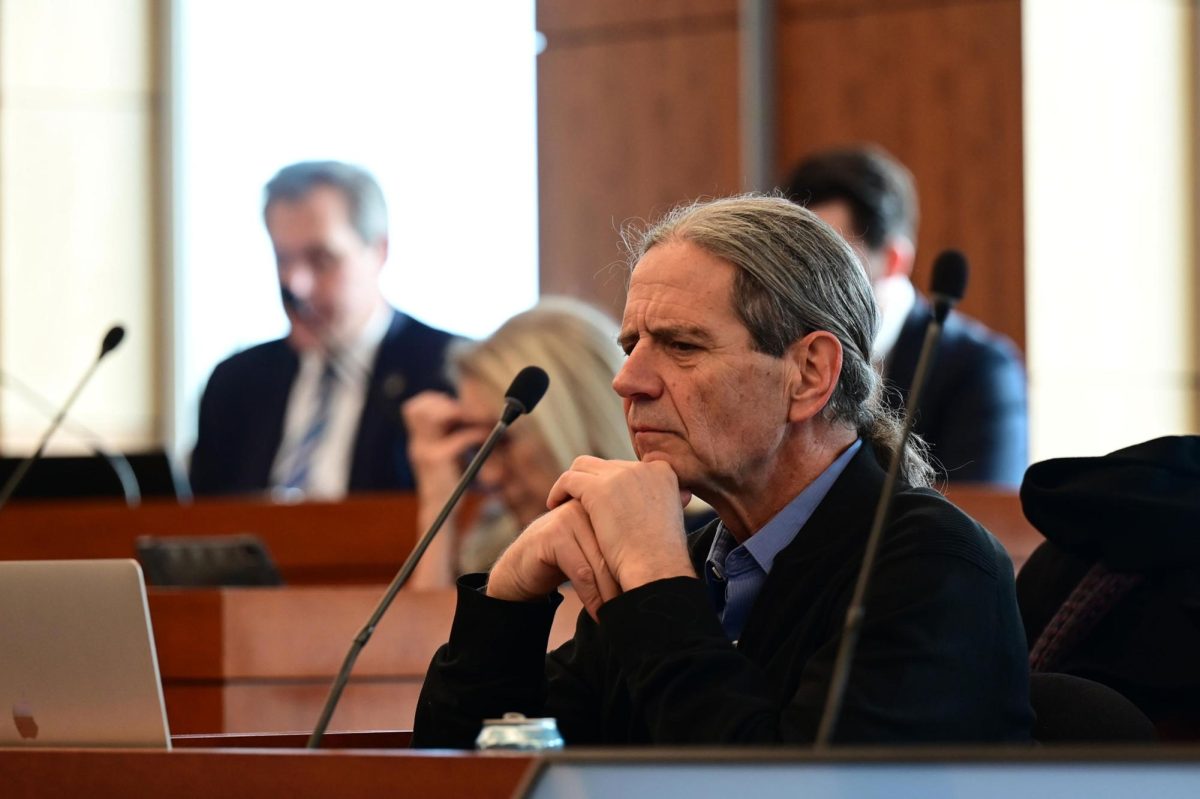A local governing body passed a resolution calling on the D.C. government to pause closures of homeless encampments until each of its residents receives housing during a meeting Wednesday.
The Foggy Bottom and West End Advisory Neighborhood Commission voted to urge District officials to halt a controversial pilot program aimed to evict three of the city’s largest encampments in hopes of relocating its residents to housing. Commissioners requested more information about the program, like how residents can qualify for its housing options and whether service providers or the D.C. Housing Authority will help transfer them to housing.
The ANC also approved a traffic safety assessment of Virginia Avenue and an elevator replacement at the Foggy Bottom Metro station. Four commissioners met at 2445 M St., gathering in person for the first time since before the COVID-19 pandemic, while four others attended online as part of the ANC’s first hybrid meeting.
Here are a few of the meeting’s highlights:
Pausing evictions at encampments
Commissioners voted 7-1 to request that D.C. officials stall the eviction of the homeless encampments on New Jersey Avenue and E Street, which is located near campus, as part of the pilot program that has already cleared the encampments in NoMa earlier this month. ANC Commissioner and alumnus Yannik Omictin introduced the resolution, calling on Wayne Turnage – the deputy mayor for health and human services – to keep the encampments open until residents have received the opportunity to be housed under the new program.
Omictin said although the housing vouchers provided through the program address the homelessness crisis, officials need to make sure everyone has had a chance to receive them before closing encampments and displacing residents. He said a large proportion of former residents at the L and M streets encampment in NoMa did not receive vouchers when they were evicted earlier this month.
As a result, one person was injured after officials clearing the encampment lifted a resident inside of a tent with a bulldozer, Omictin added.
“ANC 2A supports the speedy progression of the Housing First approach associated with the pilot program, ensuring that every eligible encampment resident can access housing, and urges that all eligible individuals at that site should have access to housing by the time a pilot program encampment site is to be closed,” the resolution reads.
Only one commissioner, Donna Barbisch, voted against the resolution, citing concerns about delaying the closure of encampments until all residents have received housing. Commissioner Joel Causey said, however, that the purpose of the resolution is not to slow down the pilot program but to make sure the District gives people enough time to accept the housing vouchers before closing encampments.
“This ANC is not by any means saying that this process should stop or slow down,” Causey said at the meeting. “We’re saying this process needs to become more thorough and actually make sure that it takes in all of our residents.”
Inspecting safety on Virginia Avenue
The ANC unanimously approved plans to conduct a traffic safety assessment of the intersection of Virginia Avenue and G Street after a runner was hit by a car while crossing the street. Commissioner Donna Barbisch said the female runner who received bruises after the collision said the intersection is “a mess.”
“Runners that come from out of the District don’t realize how dangerous it is to run, even in a crosswalk with the lights flashing,” Barbisch said. “A car stopped and she proceeded in front of his car, and the other car didn’t stop. She ended up with multiple bruises, and I think that she was lucky that she didn’t get hurt even worse.”
The District launched the Vision Zero project in 2015 with the goal of ending traffic fatalities in D.C. by 2024, but traffic deaths since the start of the program have risen from 26 in 2015 to 37 in 2020.
If the District Department of Transportation performs a traffic safety investigation, officials may not return results for up to 130 days, according to DDOT’s website.
Updating zoning at District House
University officials who attended the meeting said they’re working to update District House’s zoning in line with upcoming changes to GW’s dining system. The University will open a dining hall in District next fall, and officials said they are in the process of applying to change the building’s zoning from a publicly available retail space to the new venue restricted to members of the GW community.
Shenkman and Thurston halls will also receive new dining halls as part of the revamped dining plan.
Karen Zinn, GW’s associate vice president of business services, updated community members about the future of GWorld vendors currently operating in residence halls, announcing that Peet’s Coffee in District will also remain on campus after the building’s dining hall opens.
Kevin Days, GW’s director of community relations, said the new dining plan should address food insecurity throughout campus.
“Food insecurity is a real big issue on the GW campus, and this program is an attempt to address some of those concerns,” Days said at the meeting.
Replacing a Metro station elevator
Ann Chisholm, a government relations officer for the Washington Metropolitan Area Transit Authority, said the agency will issue a contract to replace the elevator to the Foggy Bottom Metrorail station “very soon.” Chisholm said the timeline for the project is still unknown, but the elevator will likely be shut down for some time during the replacement.
She said shuttle buses will be available to transport people who rely on elevators to the nearest Metro station with a functioning elevator.
“We want to maintain that elevator in the state of good repair,” she said.
Isha Trivedi contributed reporting.








